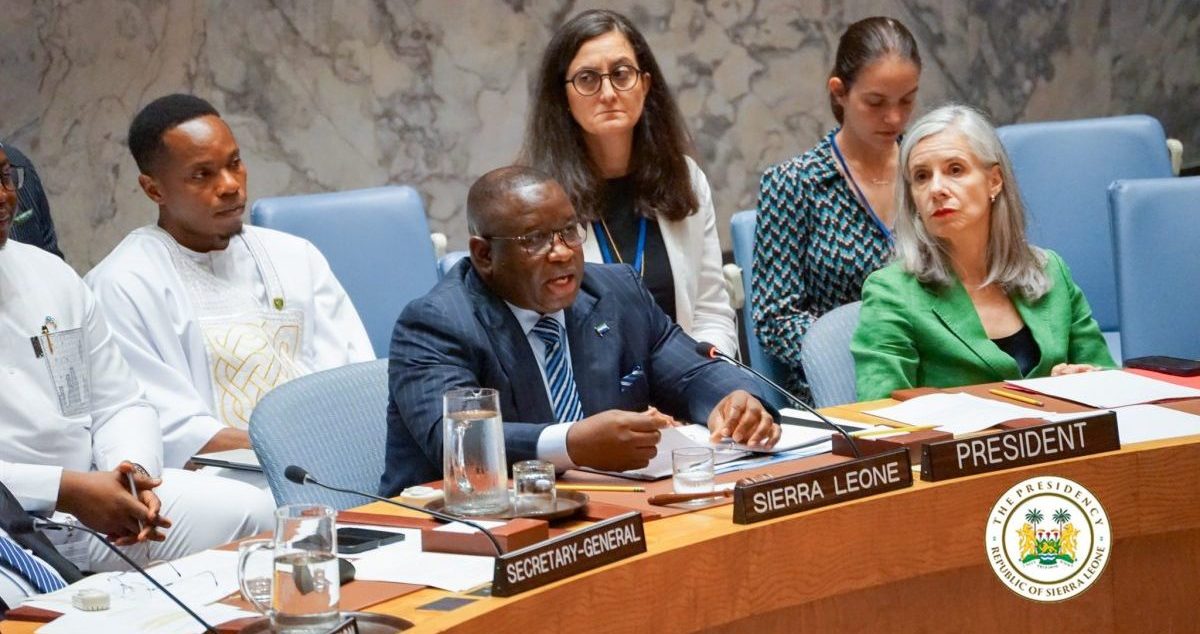Sierra Leone, under the leadership of President Dr. Julius Maada Bio, has assumed the presidency of the United Nations Security Council for the month of August 2024. Marking a historic return after a 53-year absence from the Security Council, Sierra Leone’s leadership is seen as a powerful symbol of the nation’s transformation from a country once mired in civil war to a key player in international diplomacy.
In his inaugural address as President of the Security Council, Dr. Bio underscored Sierra Leone’s journey from a conflict-ridden nation to a confident and progressive member of the international community. “Our presence here is not just a reflection of Sierra Leone’s progress but a testament to the broader need for equitable representation in global institutions,” Dr. Bio stated.
A significant portion of Dr. Bio’s address was dedicated to advocating for the reform of the UN Security Council, particularly in rectifying the historical underrepresentation of Africa. He highlighted that since the Security Council’s formation after World War II, its composition has remained largely unchanged, with the permanent seats occupied by the “victors of that war”—the United States, the United Kingdom, Russia, China, and France. Despite a mid-1960s reform that expanded membership from 11 to 15, Africa still lacks permanent representation.
Dr. Bio argued that this imbalance stems from colonial legacies and a history of exploitation, which have left Africa marginalized in global decision-making processes. He emphasized that Africa, a continent deeply affected by issues such as conflict, terrorism, and humanitarian crises, must have a more significant role in the Security Council to address these challenges effectively.
The African Union’s Committee of Ten Heads of State and Government on the Reform of the UN Security Council (C-10), which Dr. Bio coordinates, has been at the forefront of these reform efforts. The C-10 advocates for two permanent African seats on the Security Council and an additional two non-permanent seats, increasing Africa’s representation. Moreover, the C-10 calls for the abolishment of the veto power held by the current permanent members. Should the veto power be retained, the C-10 insists it should be extended to any new permanent members, including those from Africa.
President Bio stressed that Africa’s demand for reform is not just about representation but about addressing the continent’s unique challenges with African leadership. “There must be African leadership and solutions for African challenges,” he declared, urging the international community to support these reforms for the benefit of global peace and prosperity.
The call for Security Council reform has gained momentum, with growing support for the Common African Position within the UN General Assembly’s Intergovernmental Negotiations process. However, Dr. Bio expressed urgency, stating, “After 20 years of negotiations in the current format, the time to address Africa’s specific plight is now.”
As Sierra Leone takes the helm of the Security Council, the focus on Africa’s quest for greater representation and equity in global governance has been sharply brought to the forefront. The outcome of these efforts could reshape the future of international relations and strengthen the role of Africa in global decision-making.











